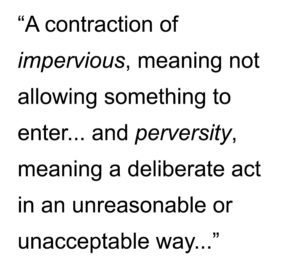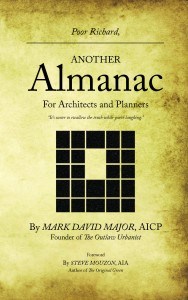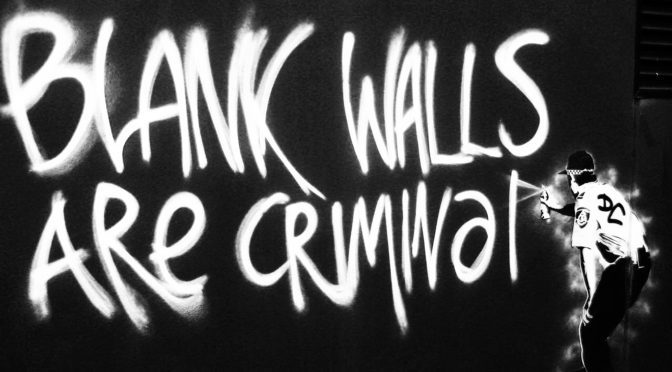4. Imperviousity
A contraction of impervious, meaning not allowing something to enter or pass through; not allowing entrance or passage (Latin impervius, from in- + pervius pervious, First Known Use: mid-17th century) and perversity, meaning a deliberate act in an unreasonable or unacceptable way; contrariness; the quality of being contrary to  accepted standards or practice; the quality of being perverted or perverse, meaning wrong or different in a way that is strange or offensive, turned away from what is right or good, contrary to the evidence (Middle English, from Anglo-French purvers, pervers, from Latin perversus, from past participle of pervertere, First Known Use: 14th century). In cities, imperviousity most commonly refers to impervious materials in constructing the built environment (such as roads, walls, etc.) or the obscuring, inversion or privatization of components of the built environment necessarily associated for human activity (such as doors, windows, and porches).
accepted standards or practice; the quality of being perverted or perverse, meaning wrong or different in a way that is strange or offensive, turned away from what is right or good, contrary to the evidence (Middle English, from Anglo-French purvers, pervers, from Latin perversus, from past participle of pervertere, First Known Use: 14th century). In cities, imperviousity most commonly refers to impervious materials in constructing the built environment (such as roads, walls, etc.) or the obscuring, inversion or privatization of components of the built environment necessarily associated for human activity (such as doors, windows, and porches).
Seven Deadly Sins for Cities is a new feature of The Outlaw Urbanist.
 Purchase your copy of Poor Richard, Another Almanac for Architects and Planners (Volume 2) today!
Purchase your copy of Poor Richard, Another Almanac for Architects and Planners (Volume 2) today!
Available in print from Amazon, CreateSpace, and other online retailers.
Available on iBooks from the Apple iTunes Store and Kindle in the Kindle Store.

